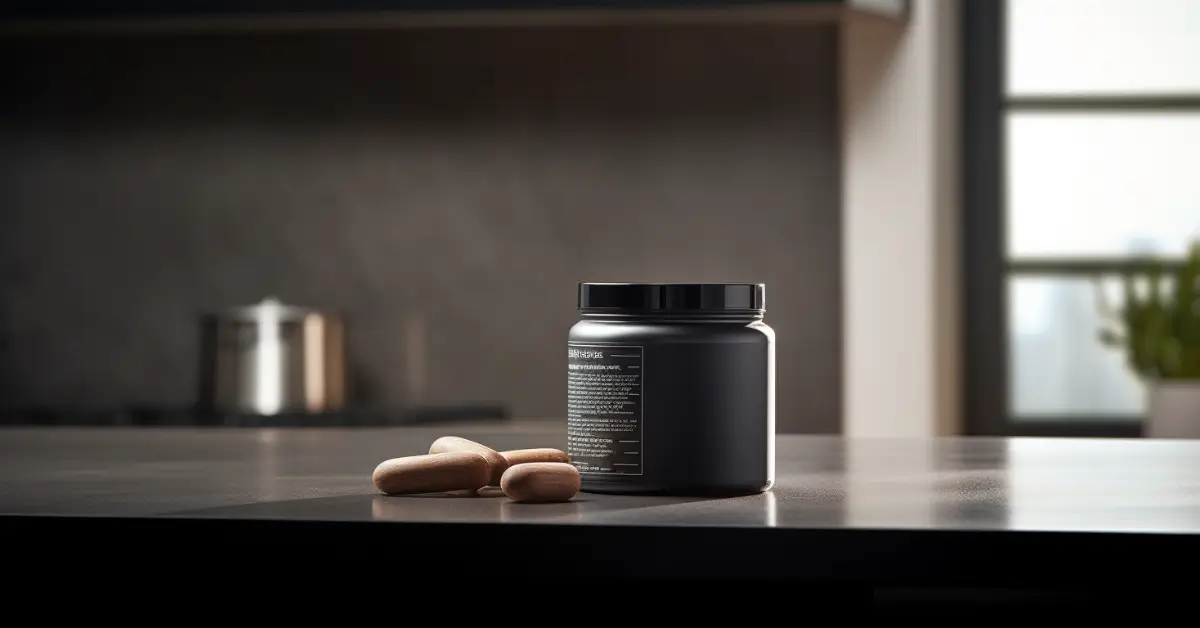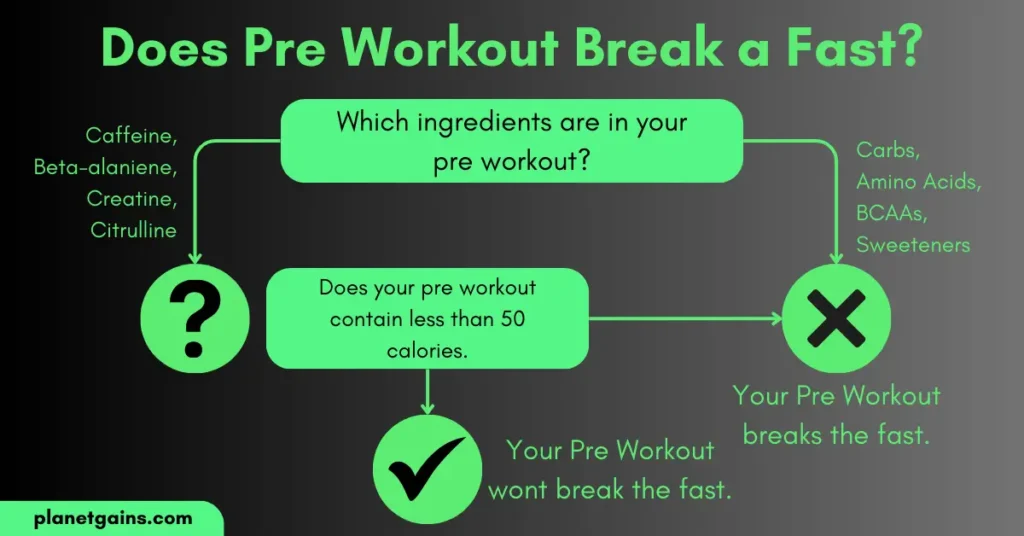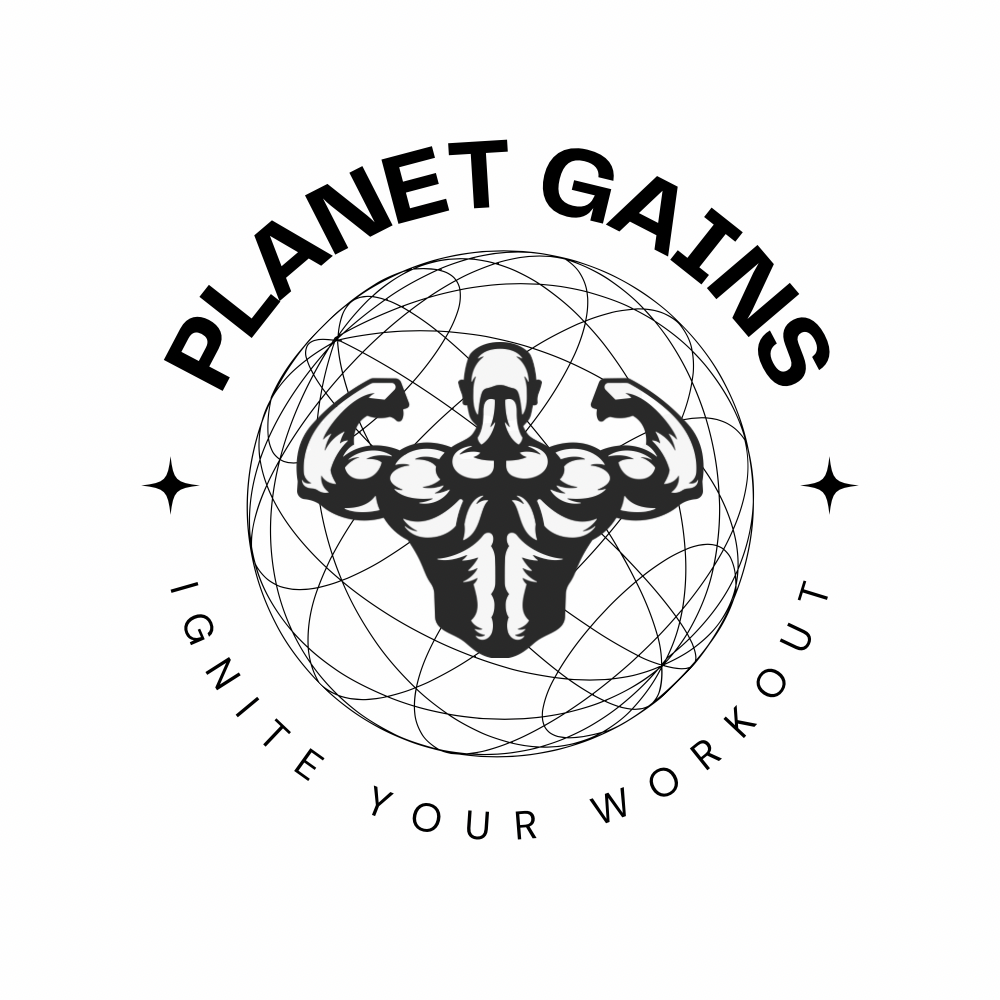📦 FREE Shipping
Taking Pre Workout on an Empty Stomach in 2024? (Read first)

Are you someone who likes to hit the gym early in the morning? If so, you may be wondering whether taking pre workout on an empty stomach is a good idea. This is a common question that many fitness enthusiasts ask themselves, especially when fasting.
The fitness community is split into two camps: Some believe that taking pre workout on an empty stomach can help them to achieve better results during their training. Others argue that taking pre workout on an empty stomach can be harmful, and may lead to nausea, dizziness, or other side effects.
Understanding Pre Workout on an Empty Stomach
When it comes to working out on an empty stomach, there are a lot of opinions out there. Some people swear by it, while others believe it can be dangerous. But what about taking pre workout on an empty stomach? Is it safe and effective?
First, let’s define what we mean by an empty stomach:
When we exercise in a fasted state, our bodies use stored energy (glycogen) as fuel. This can lead to increased fat-burning and improved insulin sensitivity.
Now, let’s talk about pre-workout supplements. These are typically taken before exercising to enhance performance, increase energy, and improve focus. Most pre-workouts contain a blend of ingredients, such as caffeine and beta-alanine. Often you will also find creatine in pre workouts.
So, can you take pre workout on an empty stomach? The short answer is yes, you can. In fact, some people prefer to take pre workout on an empty stomach because the kick in time of pre workout tends to be lower. However, it’s important to note that everyone’s digestive system is different, and some people may experience discomfort or nausea when taking pre-workout without food.

If you do decide to take pre workout on an empty stomach, it’s important to pay attention to the ingredients. Caffeine, for example, can cause stomach irritation in some people, especially when taken in large doses. Beta-alanine can also cause a tingling sensation in the skin, which can be uncomfortable for some. This is often referred to as pre workout itch.
Benefits of Pre Workout on an Empty Stomach
I also wondered, if taking pre workout on an empty stomach is good for your body. That’s my I did my research: The truth is, there are several benefits to consuming pre workout on an empty stomach:
- Fat burn and weight loss 🚀
- Increased stamina and endurance 🧬
- Faster absorption of nutrients 🫐
Let me explain the benefits to you in further detail.
Fat Burning and Weight Loss
One of the most significant benefits of taking pre workout on an empty stomach is the potential for increased fat burning and weight loss. When you exercise on an empty stomach, your body is forced to use stored fat as fuel. By taking pre workout before your workout, you can further enhance this effect and potentially burn even more fat.
This pre-workout gives me a great energy boost and helps me get it done. It contains zero calories and won't break a fast.
PRO:
✅ Organic Caffeine ✅ Tasty and easy to mix
CON:
❌ Beta-alanine does not break a fast, but sometimes causes an itch.
Increased Stamina and Endurance
Another benefit of taking pre workout on an empty stomach is increased stamina and endurance during your workout. When you eat before your workout, your body has to divert energy to digest the food, which can leave you feeling sluggish and tired. By taking pre workout on an empty stomach, you can avoid this energy diversion and potentially have more energy to power through your workout.
Faster Absorption of Nutrients
Taking pre workout on an empty stomach can also lead to faster absorption of nutrients. When you consume pre workout on an empty stomach, there is nothing else in your digestive system to slow down the absorption of the nutrients. This means that the pre workout can be quickly absorbed into your bloodstream, leading to a faster and more intense effect.

Potential Side Effects and Risks
But, it isn’t always as good as it seems. I’ve also heard of some potential side effects when you take pre workout on an empty stomach. In the end, you’ll have to listen to your own body and decide whether it’s good or bad.
- Nausea and diarrhea 😵💫
- Hypertension and jitters 😨
- Allergic reactions and sensitivities 🤒
Nausea and Diarrhea
One of the most common side effects of taking pre workout on an empty stomach is pre workout nausea and diarrhea. This is because the ingredients in pre workout supplements can irritate the lining of the stomach, especially when taken on an empty stomach. To reduce the risk of these side effects, it is recommended to eat a small snack before taking pre workout.
Hypertension and Jitters
Another potential risk of taking pre workout on an empty stomach is hypertension and jitters. Pre workout supplements often contain caffeine, which can increase blood pressure and cause jitters and anxiety. This can be especially dangerous for people with pre-existing heart conditions or high blood pressure. To reduce the risk of these side effects, it is recommended to start with a low dose of pre workout and gradually increase as tolerated.
Allergic Reactions and Sensitivities
Finally, some people may experience allergic reactions or sensitivities to the ingredients in pre workout supplements. This can include skin rashes, hives, and difficulty breathing. It is important to read the label carefully and avoid any ingredients that may cause an allergic reaction. If you experience any symptoms of an allergic reaction, stop taking the supplement immediately.

Pre-Workout Supplements and Ingredients
When it comes to pre-workout supplements, there are a variety of ingredients that can help you achieve your fitness goals. Whether you’re looking to boost energy levels, build muscle, or increase strength gains, there are pre-workout supplements that can help. I listed some of the most common ingredients found in pre-workout supplements and how they can benefit you:
Caffeine and Energy Levels
Caffeine is a popular ingredient in pre-workout supplements because it can help increase energy levels and improve focus. When taken before a workout, caffeine can help you push through fatigue and get more out of your training session. It’s important to note that caffeine affects everyone differently, and taking too much can lead to negative side effects like jitters, anxiety, and insomnia. Especially on an empty stomach, you will need less caffeine than normally.
Amino Acids and Muscle Building
Amino acids are the building blocks of protein, and they play a crucial role in muscle building and recovery. Many pre-workout supplements contain amino acids like BCAAs (branched-chain amino acids) and beta-alanine. BCAAs can help reduce muscle breakdown during exercise, while beta-alanine can help improve endurance and delay fatigue.
Creatine and Strength Gains
Creatine is a popular ingredient in pre-workout supplements because it can help increase strength gains. Creatine works by increasing the amount of energy available to your muscles, which can help you lift heavier weights and perform more reps.
When Is It Better to Pair Pre-Workouts with a Meal?
Sometimes, taking pre workout on an empty stomach may not be the best option for everyone. Here are some situations for you, where pairing pre-workouts with a meal may be more beneficial:
1. Longer Workouts
If you’re planning on doing a workout that lasts longer than an hour, it’s a good idea to eat a meal that contains carbohydrates before your workout. Carbohydrates are the body’s preferred source of fuel, and they can help you power through your workout more easily.
2. High-Intensity Workouts
If you’re doing a high-intensity workout, such as sprints or weightlifting, you may want to eat a meal that contains protein before your workout. Protein can help your muscles recover more quickly, which can be especially important if you’re doing a workout that’s particularly challenging.
3. Sensitive Stomachs
If you have a sensitive stomach, you may find that taking pre workout on an empty stomach can cause digestive issues. In this case, it may be better to eat a small meal before your workout to help prevent any discomfort.
Alternatives to Pre Workout on an Empty Stomach
If you’re like me, you may find the feeling of taking pre workout on an empty stomach a bit strange. Or maybe you’re looking for some other options to fuel your workout. Whatever the reason, I’ve got you covered with some alternatives to taking pre workout on an empty stomach.
Pre-Workout Meal
One option is to have a pre-workout meal. This can be a meal that you eat a few hours before your workout, or a smaller snack that you eat about 30 minutes before. The key is to choose something that will provide you with sustained energy throughout your workout. Some good options include:
- Oatmeal with fruit and nuts 🥜
- Greek yogurt with berries and granola 🍓
- Whole grain toast with avocado and egg 🥑
- Smoothie with protein powder, fruit, and spinach 🥬
Hydration and Water Intake
Another important factor to consider is hydration. Drinking enough water before, during, and after your workout can help you perform better and feel better. Aim to drink at least 16 ounces of water 2 hours before your workout, and then continue to drink water throughout your workout. If you’re doing a longer workout, you may also want to consider a sports drink with electrolytes.
Timing of Exercise
Finally, the timing of your exercise can also make a big difference in how you feel during your workout. If you’re not able to eat a pre-workout meal, try to schedule your workout for a time when you’re not feeling too hungry. For example, if you’re a morning person, try to schedule your workout for early in the day before you’ve had a chance to get too hungry. Or if you prefer to workout in the evening, make sure you’ve had a snack or small meal a few hours before.
Fasted Training and Intermittent Fasting
When it comes to working out, there are many different approaches you can take to maximize your results. One method that has gained popularity in recent years is fasted training, which involves exercising on an empty stomach. This approach is often used in conjunction with intermittent fasting, a dietary pattern where you alternate between periods of eating and fasting.
Fasted training is believed to help burn more calories during exercise, as your body is forced to rely on stored fat for energy instead of the glucose from food. This can be especially beneficial for those looking to lose weight or reduce body fat. In addition, some research suggests that fasted training may also improve insulin sensitivity and increase muscle protein synthesis.
When taking pre workout while fasting, it’s a frequent question, whether pre workout breaks a fast. Use this decision pattern to find the answer for you.

Intermittent fasting, on the other hand, has been shown to have a number of health benefits beyond just weight loss. It has been linked to improved blood sugar control, reduced inflammation, and even increased lifespan in some animal studies. By combining intermittent fasting with fasted training, you may be able to further enhance these benefits. Some people although might experience a pre workout crash.
Our Experience with Pre Workout on Empty Stomach
When it comes to working out, many people debate whether it’s better to eat before or after exercising. Some of my friends prefer to take their pre workout on an empty stomach. Let me tell you about my experience.
At first, I was a little hesitant to take pre workout on an empty stomach. I was worried that it might cause stomach discomfort or make me feel lightheaded during our workouts. And unfortunately this was the case.
I found that taking pre workout on an empty stomach gave me a weird feeling and is nothing I’d continue doing when having long and intensive workouts. That’s why I make sure to always have a snack before the gym. Also note that overdosing on pre workout is super dangerous.
Of course, everyone’s body is different, and what works for me may not work for everyone. It’s important to listen to your body and adjust your routine accordingly.
Frequently Asked Questions About Pre Workout on Empty Stomach
Can I take pre-workout on empty stomach?
Yes, you can take pre workout on an empty stomach. But, it’s important to keep in mind that everyone’s digestive system reacts differently to supplements, and the way pre workout affects your gut depends on the ingredients and formulation.
Do I need to eat before taking pre-workout?
While it’s not necessary to eat before taking pre-workout, some people may find that having a small snack beforehand can help reduce stomach discomfort. If you do decide to eat before taking pre-workout, it’s best to stick to something light and easy to digest, such as a banana or a handful of almonds.
Is C4 pre-workout good on an empty stomach?
C4 pre-workout is a popular supplement that many people use to enhance their workouts. While it’s generally safe to take c4 pre workout on an empty stomach, it’s important to keep in mind that everyone’s body reacts differently to supplements.
Should I eat pre-workout in the morning?
If you prefer to work out first thing in the morning, you might be wondering if you should eat before taking pre-workout supplements. While it’s not necessary to eat before taking pre-workout, some people may find that having a small snack beforehand can help reduce stomach discomfort.
Now I’m interested about your opinion. Did you try it already, and how did you feel? Just write me a comment. You are for sure also interested in reading about pre workout calories or how the Pre Workout Routine of Andrew Huberman looks like.






